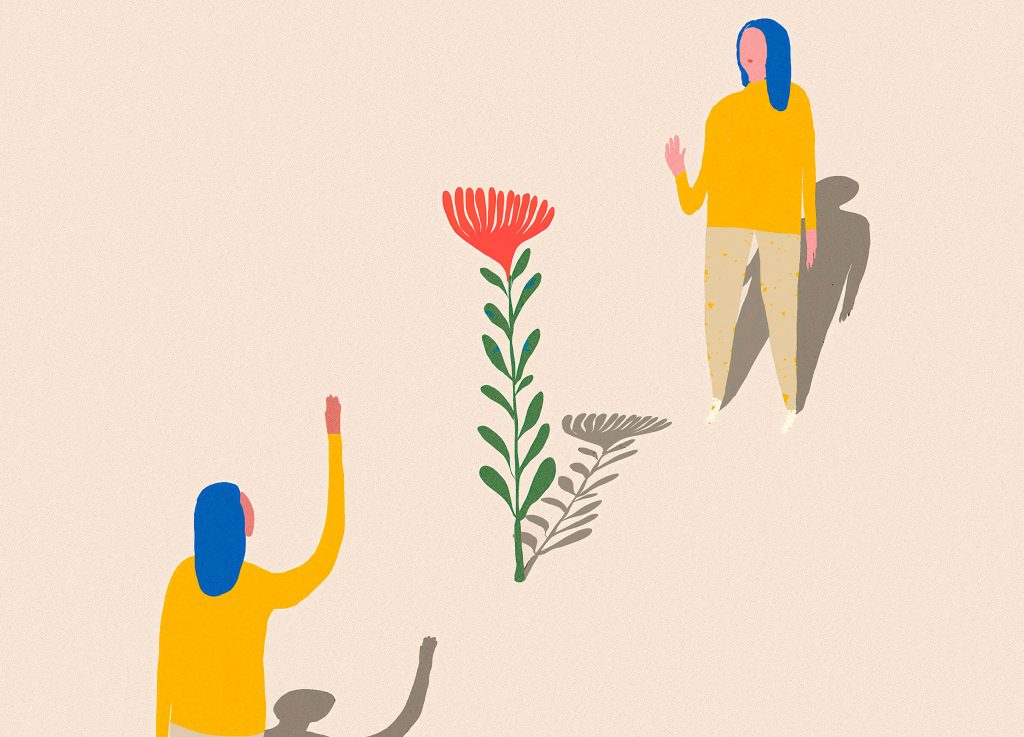 Louise Arseneault, Professor of Developmental Psychology at King’s College London and Mental Health Leadership Fellow for the UKRI Economic and Social Research Council (ESRC) summarises key interdisciplinary research questions and priorities for mental health science in this time of crisis and loss.
Louise Arseneault, Professor of Developmental Psychology at King’s College London and Mental Health Leadership Fellow for the UKRI Economic and Social Research Council (ESRC) summarises key interdisciplinary research questions and priorities for mental health science in this time of crisis and loss.
In the space of a few weeks, we have seen the consequences of the Covid-19 pandemic go from a sudden increase in infections and deaths to border shutdowns, strict isolation measures, massive job losses, and a global economic downturn. The initial government response focused on ensuring adequate provision to address critical health and national security needs. As the situation continues to evolve, initiatives are now being developed to capture, understand and, above all, mitigate the profound impact of the pandemic on society. Almost all aspects of life have been altered.
Pervasive impacts on health and society: key research questions and priorities
The crisis provides us with a striking reminder that physical and mental health are profoundly intertwined. The impacts will be long term, extending beyond the lockdown period as the predicted social and economic consequences of the virus unfold world-wide.
To think about how to respond to the impact on mental health, the Academy of Medical Sciences and the mental health charity, MQ, convened an interdisciplinary group of people from across the bio-psycho-social spectrum in mental health science, including people with lived experience of mental health problems, to identify research priorities and key questions for mental health and brain sciences.

The crisis provides us with a striking reminder that physical and mental health are profoundly intertwined.
A paper published in Lancet Psychiatry on April 16th 2020 presented those key questions. I have summarised these below, along with a personal interpretation.
- What impact will Covid-19 have on the risk of anxiety, depression, and other outcomes such as self-harm and suicide? An increase in anxiety and depression symptoms is an expected response to the current distressing situation. Most people will have experienced periods of feeling down, distressed, and anxious during the past few weeks. However, we could potentially see more people experiencing ongoing mental health disorders due to the pandemic and so it will be important to track and report fluctuation in rates of anxiety, depression, self-harm, and suicide. These data will provide valuable insight into the consequences of the situation on mental health to inform policy and practice. The pandemic may also result in increase in people with alcohol and drug addiction, eating disorders and obsessive-compulsive disorders (OCD), or an exacerbation effect in people already experiencing these. Finally, we must understand risks for the group of key workers who experienced greater exposure to the virus and its impact during the peak of the outbreak, including monitoring rates of post-traumatic stress disorder (PTSD).
- How can we promote good mental health in the wake of the pandemic and the lockdown? There is a lot of information in the public domain about ways to help people face difficult and stressful situations. It remains uncertain, however, whether all these strategies, although well-meaning, actually result in beneficial outcomes due to a lack of sufficient evidence. There will also be inequality in how easy it is for people to follow certain strategies. For example, advice to access nature will be more difficult for people living in urban areas and without gardens, whilst online communication will not be accessible for people without access to certain technologies. The current crisis provides a window of opportunity to evaluate existing programmes to see how well they support wellbeing at a population level. Another focus will be on developing effective methods to upscale and provide more resources to promote good mental health, supporting people to find what works for them in a way that is responsive their personal circumstances.
- What impact will the lockdown and social isolation have on the mental health of vulnerable people? How can these impacts be reduced? Vulnerable groups (such as the elderly, people with prior mental health problems, those living in deprivation or in abusive relationships, the bereaved, refugees) and excluded groups (such as people who are homeless, prisoners) are, and will be, disproportionately affected by the pandemic. It will be important to identify those groups as the situation evolves, and propose new methods for increasing accessibility of services and delivering mental health support, both in the immediate future and longer term. The housing of homeless people in empty hotels is an example here. It has been described as “a golden opportunity to help more people to turn their lives around and seek the support they so desperately need” but what will happen post-lockdown? Can we think creatively about how to turn this “golden opportunity” into something that results in sustainable change? Given the changing nature of the situation, vulnerable groups and people within these groups may change with time and circumstances, something we must be aware of so we don’t leave people behind.
- What is the impact of the wall-to-wall media coverage of the pandemic on mental health and wellbeing? How can we amplify positive but mitigate negative impacts? Access to information is crucial during these stressful times. The media provides us with quick and easy access to a wealth of data and opinions, and also offers a sense of being connected to the rest of the world during this period of social isolation. However, the flow of news and briefing reports can be overwhelming and distressing. It will be important to assess how the use of media has changed as a result of the pandemic and how it has affected people’s mental health, wellbeing and feelings of being lonely. Consideration of both positive and negative influences of the media coverage will be essential to consider improvements and adjustments to communication channels.
- What are the best ways to get people to follow the expert advice on reducing the risks of infection – without unduly increasing stress and anxiety? Necessary restrictions to our normal activities including work, social gatherings and travelling may impinge on our mental health and wellbeing. It will be important to understand how public information campaigns can have positive consequences while avoiding potential side-effects on people’s wellbeing.
- What effects will the virus have on the brain and mental health? The virus potentially impacts on the brain and the nervous system in ways that are still unknown. As there is evidence that the related SARS coronavirus can enter the brain, and symptoms potentially linked to the brain such as loss of taste and smell, and muscle weakness have been reported, it will be important to rapidly build new knowledge to develop new drugs, or repurpose existing ones, to treat or stop potential secondary infection of the brain.
The task ahead
The task and the challenges ahead are huge. As a community of researchers, we must step up and act rapidly and collaboratively while maintaining the highest research quality and ethical standards. Interdisciplinary research will be essential for finding sustainable, effective, and far-reaching solutions. Research funders must engage with researchers to assess the immediate impact of the situation on mental health and wellbeing, but also manage funds so as to allow the assessment of the long-term impact of the pandemic. It is also important that we harness existing resources when developing new initiatives and to coordinate research infrastructure to share established resources, for example, to provide valuable baseline data on the situation before the pandemic from representative samples relevant to the people most likely to be affected by the pandemic.

As a community of researchers, we must step up and act rapidly and collaboratively while maintaining the highest research quality and ethical standards.
Social inequalities and the longer term response
In a few years, we will remember this pandemic with the phrase “We are all in this together”. This may bring reassurance to some right now but we need to consider two points. First, as widely debated on media platforms, the impact of the pandemic does not seem to be the same for everybody, and research has an important role in understanding how social context influences – and possibly determines – this impact on mental health and the brain. Some subgroups of the population will be more affected, and we need to understand who, why, how, and what we can do to mitigate this harmful impact.
Second, while we must envisage better days are coming, the impact of the situation will last beyond the lockdown period and research priorities must capture its longer term consequences. It has been heartening to see a number of much needed initiatives to provide informal support and build a sense of community during this time of isolation: neighbours checking in with each other by phone, protected shopping times for the elderly, and restaurants cooking for NHS staff to name but a few. However, the world may become a threatening and lonely place for those most affected when these hastily constructed support systems inevitably recede. We need to think now about how initiatives that have proved effective can continue to be resourced and adapted.
The pandemic has brought a sense of global loss: loss of lives, employment, relationships, homes, education, and opportunities. People’s care and concern for others have found a whole new meaning in a changing world marked by distance, limits and warnings. Understanding what is happening now is crucial, and so is learning lessons to prepare for an uncertain future.

Although we will remember this pandemic with the phrase “We are all in this together” we must also consider that the impact of the pandemic does not seem to be the same for everyone and that the impact of this situation will last beyond the lockdown period.
References
You can read the full Lancet Psychiatry paper here and a summary of the survey results here.
Louise was an author on the Lancet Psychiatry paper.
Leave a Reply
You must be logged in to post a comment.